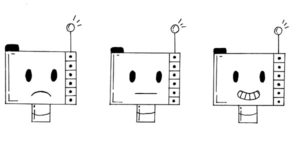Both a programmer and a non-programmer can become an RPA expert. Yes, you need programming skills to become an RPA expert, even an RPA developer but also a non-programmer can learn RPA tools that include fewer codes.
However, there is no mandate to have an expert in one or two programming languages, a candidate from any programming knowledge opt RPA skills.

RPA developers are in high demand. This field itself is a booming sector and large companies are investing more and more in the development of RPA tools. So needless to say they are willing to pay a big amount for a worthy developer. Large corporations like IBM or Capgemini are spending millions to harness the power of these tools for refactoring and streamlining their workflow.
Companies do consider candidates who at least have 2-4 years of work experience in any programming language but also ask for some basic understanding to have in programming, including scripting/coding. Individuals with strong problem-solving and Analytics skills are more acceptable than others.
Experienced candidates with Analysis, Designing, Business management, implementation, testing, and of course certification in RPA tools such as Blue Prism, Automation Anywhere, UiPath, Redwood, Open Span, and Work Fusion are on higher demands.
Make Your Robots – Try RPA Tools
There are many RPA tools are available which does not require any expertise level or even any knowledge of programming skill such as UiPath. So, if you are a non-programmer and seeking to get into the automation industry, learning UiPath has to be your topmost priority.
RPA tools are designed in a way that they are extremely easy to use. You won’t need any programming skills to perform basic automation operations.
Companies have spent a lot of money on the research and development of RPA tools to ensure that they are easier to use, which will make automation of tasks much easier.
People would love to automate the daily tasks that they have to do manually. And a large portion of these people does not know how to code. So, making an RPA tool that requires a lot of coding knowledge just to perform a basic operation is useless.
The main objective of using RPA or any form of automation is to reduce human error. So, companies won’t want to use tools that require expertise over programming. Because then, a programmer can make a mistake when writing a piece of code, which will make things worse.
Plus, you will need to hire an additional programmer just to automate a simple task. After writing the code, the programmer needs to see and debug the code. So, a company will have to spend more money and time on the project if they use such an RPA tool (which is something they don’t want to).
Tech has advanced to such an extent these days that you can find RPA tools on the market that can do lots of advanced automation tasks without requiring any programming knowledge. So, now you don’t have to hire any expensive programmers or developers.
Those tools are not code-led but are more rule-based systems that help to capture business flows. All you need to use is simple business logic where you use if-else conditions. And you can set these conditions with just a few clicks of your mouse.
In simple words, non-programmers are required to have excellent business-related skills to work in an RPA related profile as companies do consider non-IT people more into operational departments such as business, production, sales, finance, etc.
And in any case, if you will require any programming skills in your RPA profile, there will be programmers to help you. RPA is one automation technology that created more and highly paid opportunities for people with experience in banking, insurance, sales, and production.
In a nutshell, RPA developers are responsible for the design, creation, development, and most importantly, the implementation of the RPA system.
Let’s take a journey of roles and responsibilities of an RPA expert step by step.
By implementing RPA tools, they first analyze the business data provided by an organization and later structure to keep that data ahead into designing and creation.
Now, based on data, they do follow some steps to reach their desired result. Those are:
Well, an RPA developer can be employed for several different roles depending on what the organization is looking for. That being said, the responsibilities of an RPA developer essentially boil down to the creation, development, designing, and ultimately implementation of the RPA systems. They are also responsible for investigating, analyzing, and creating automated processes for maximizing efficiency.
Following is a list of the roles of a Robotic Process Automation developer:
Now, that’s a lot of responsibility. But truth be told, most of the time an RPA developer or architect does not need to take care of all these things. In fact, these responsibilities can be split into many sub-list for the many specialized roles like an automation architect or a process designer.
There is an eligibility criterion for a candidate to get their dream job in automation.
A candidate should have a bachelor’s degree with a good CGPA. A candidate with a bachelor’s degree in the IT sector such as computer science, management information systems, business administration, engineering, and mathematics is more considerable than with another sector graduate. And along with a bachelor’s, a candidate should have an RPA certification at least with two to three tools.
As an RPA developer you need to have grip in some/most of these skills:
Let’s have a look at the offered salary packages to a candidate with RPA certification.
For freshers, the average salary package offered by companies is between 4,00,000 to 8,00,000 p.a., which is quite good at the start.
For experienced with two-five years, it is between 8,00,000 to 15,00,000 p.a. And, I hope you can calculate average salary packages for those who are experienced more than five years.